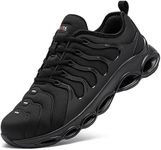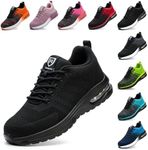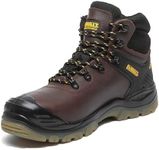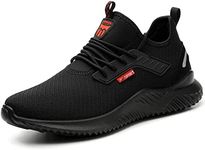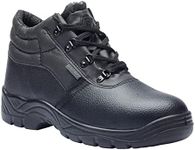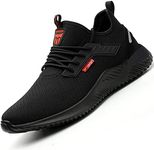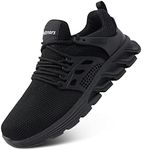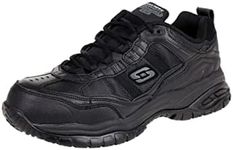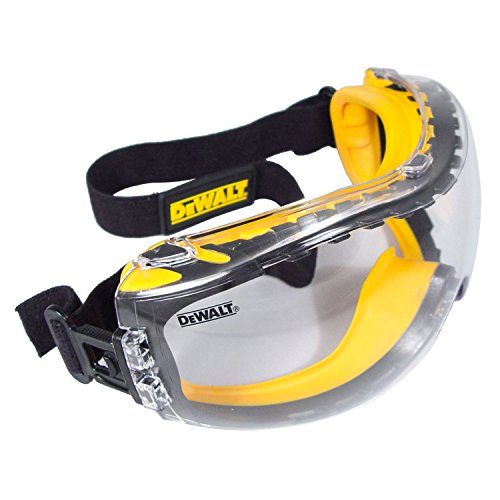Buying Guide for the Best Safety Shoes
Choosing the right safety shoes is crucial for ensuring your feet are protected in hazardous work environments. Safety shoes are designed to provide protection against various risks such as falling objects, sharp items, electrical hazards, and slippery surfaces. When selecting safety shoes, it's important to consider the specific requirements of your job and the environment in which you'll be working. Here are some key specifications to look for and how to choose the best fit for your needs.Toe ProtectionToe protection is a critical feature in safety shoes, designed to shield your toes from heavy falling objects or compression. There are different types of toe protection, such as steel toes, composite toes, and aluminum toes. Steel toes offer the highest level of protection but can be heavier, while composite and aluminum toes are lighter and provide adequate protection for less hazardous environments. Choose steel toes for high-risk jobs like construction, and composite or aluminum toes for lighter tasks or if you need more comfort.
Slip ResistanceSlip resistance is important to prevent falls and injuries, especially in wet or oily conditions. Safety shoes with slip-resistant soles have special tread patterns and materials that provide better grip. Look for shoes with high slip resistance if you work in environments like kitchens, factories, or outdoors where surfaces can be slippery. For less hazardous environments, moderate slip resistance may be sufficient.
Electrical Hazard ProtectionElectrical hazard protection is essential if you work around live electrical circuits or equipment. Safety shoes with this feature are designed to insulate you from electrical shocks. They typically have non-conductive soles and materials that prevent electricity from passing through. If your job involves electrical work, make sure to choose shoes with electrical hazard protection. For jobs without electrical risks, this feature may not be necessary.
Puncture ResistancePuncture resistance protects your feet from sharp objects like nails or glass that could penetrate the sole. Safety shoes with puncture-resistant soles have a special layer, often made of steel or composite materials, that prevents sharp objects from piercing through. If you work in environments with a high risk of stepping on sharp debris, such as construction sites or warehouses, prioritize puncture-resistant shoes. For office or retail jobs, this feature may not be as critical.
Comfort and FitComfort and fit are essential for wearing safety shoes for extended periods. Look for shoes with cushioned insoles, breathable materials, and proper arch support to ensure comfort. The fit should be snug but not too tight, allowing for natural movement without causing blisters or discomfort. If you have specific foot issues like flat feet or high arches, consider shoes with specialized support. Always try on safety shoes and walk around to ensure they feel comfortable before making a purchase.
DurabilityDurability is important to ensure your safety shoes last through tough conditions. Look for shoes made from high-quality materials like leather or reinforced synthetic fabrics. Check for strong stitching and robust construction. If you work in demanding environments, such as construction or manufacturing, prioritize durability to avoid frequent replacements. For less demanding jobs, moderate durability may be sufficient.
